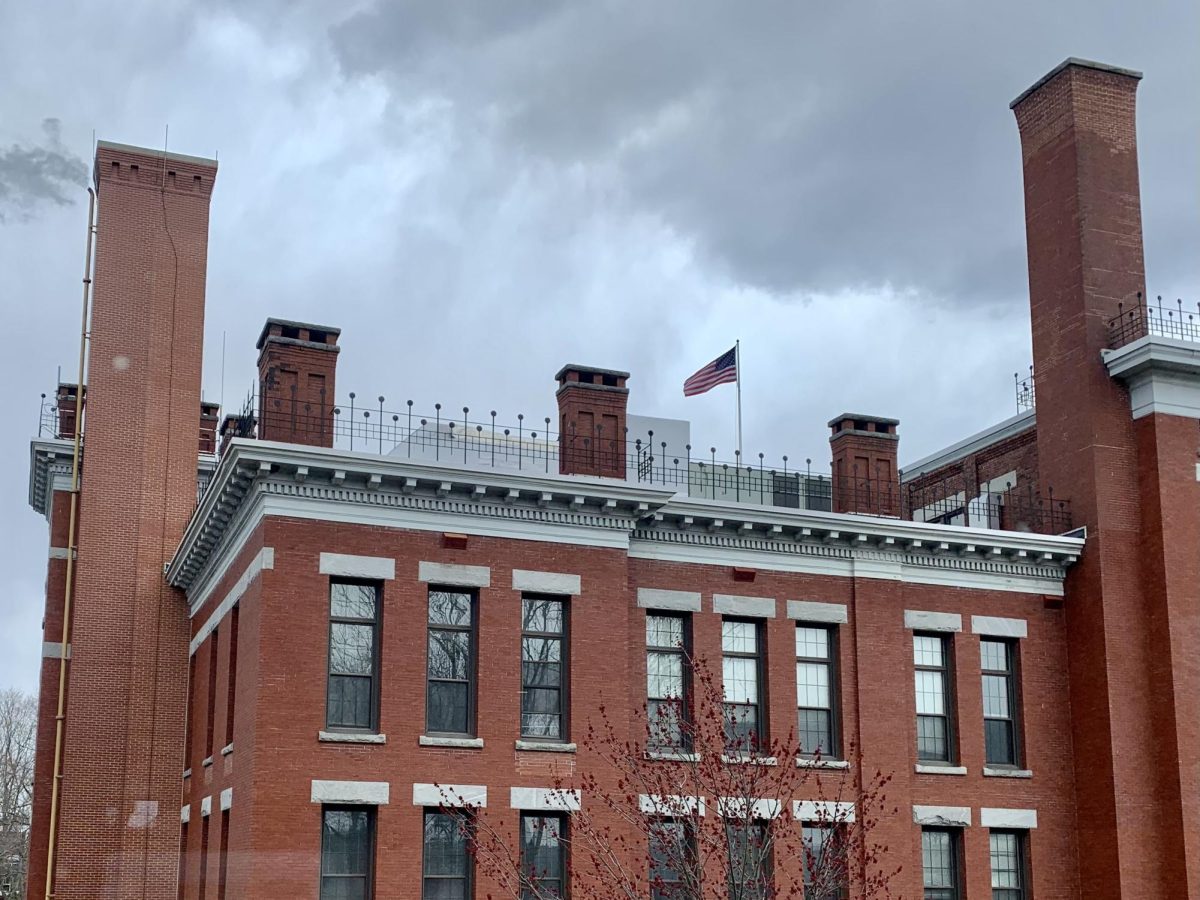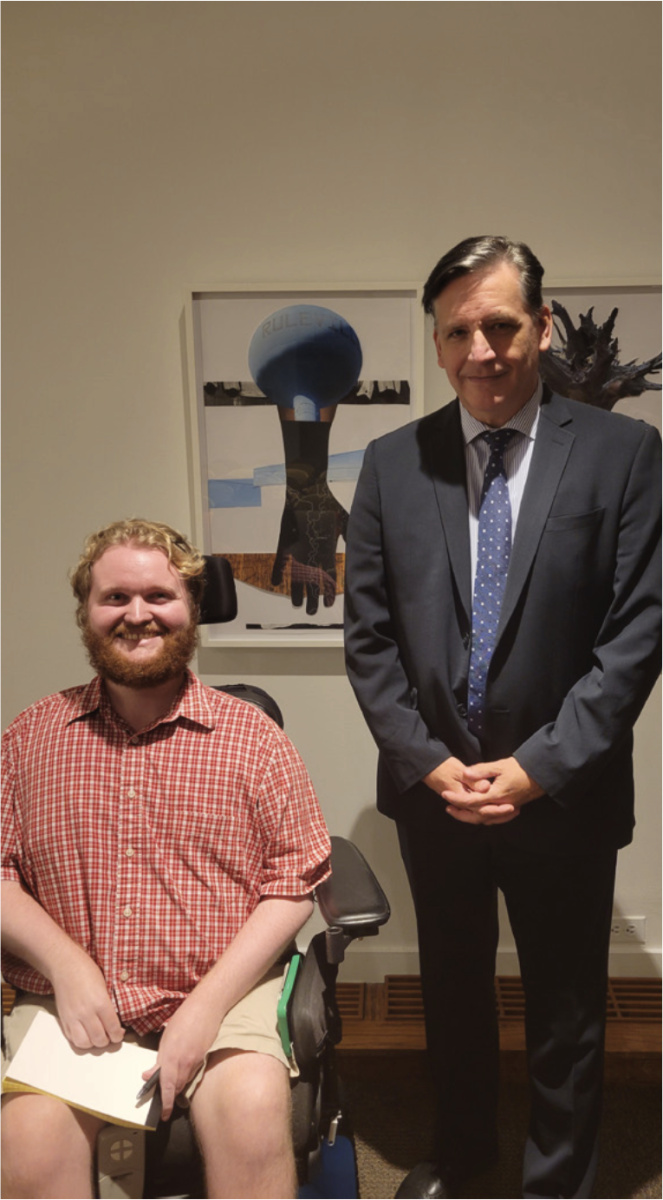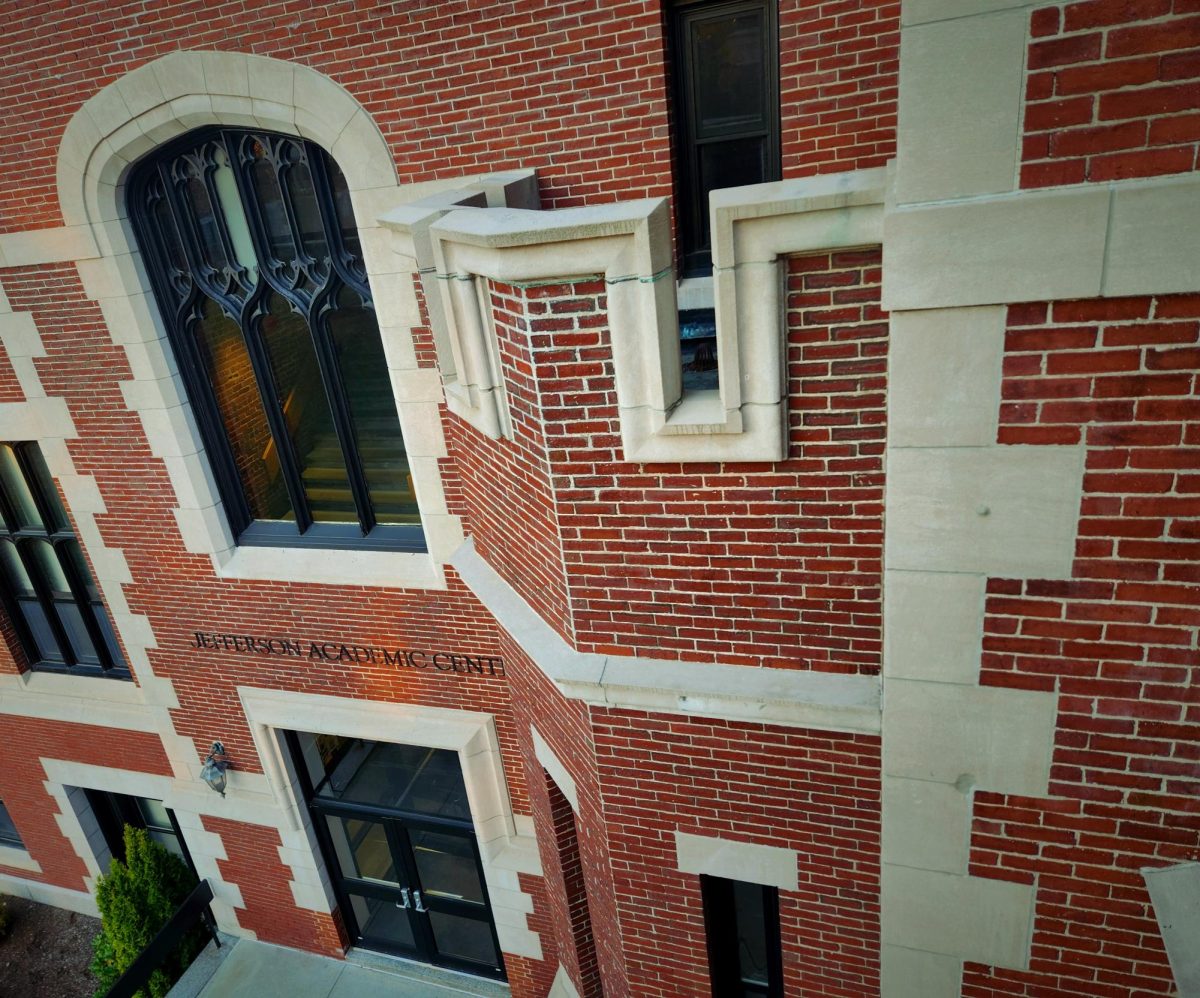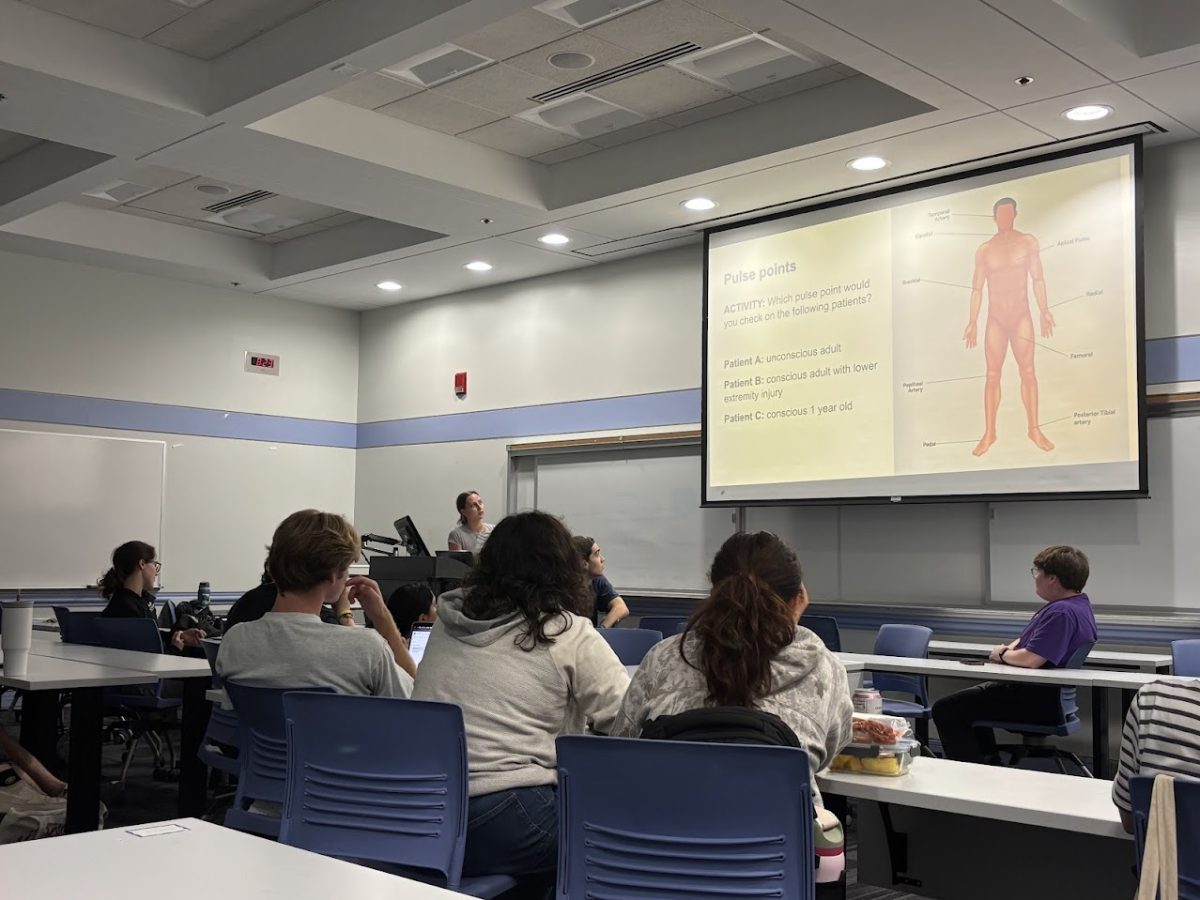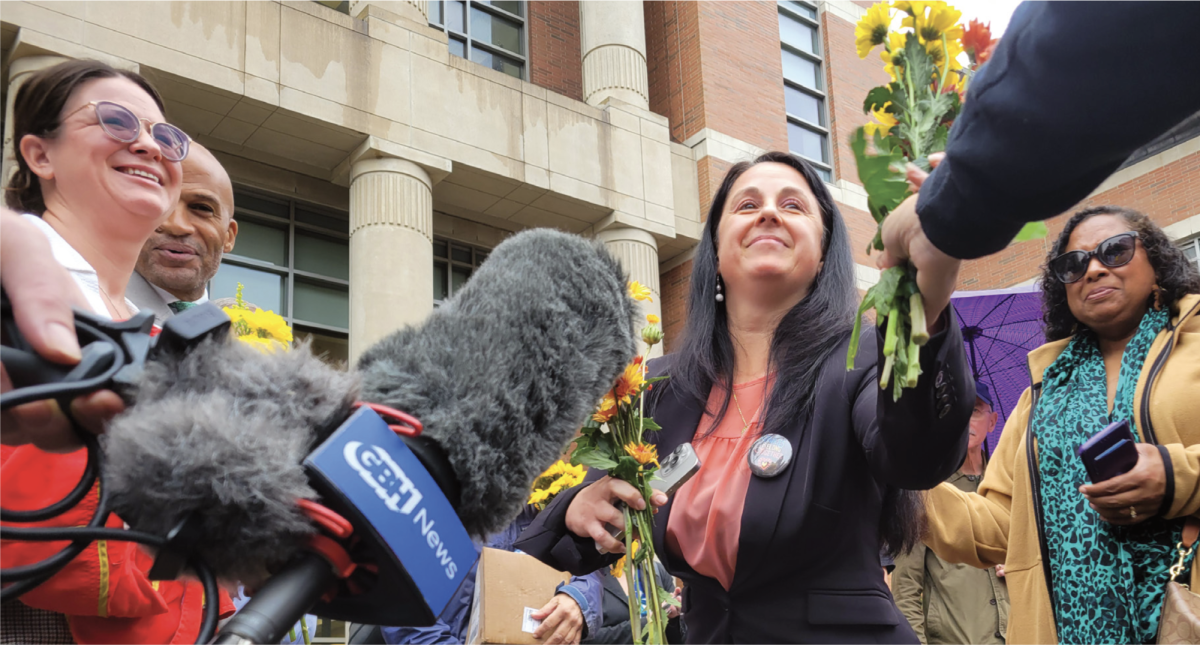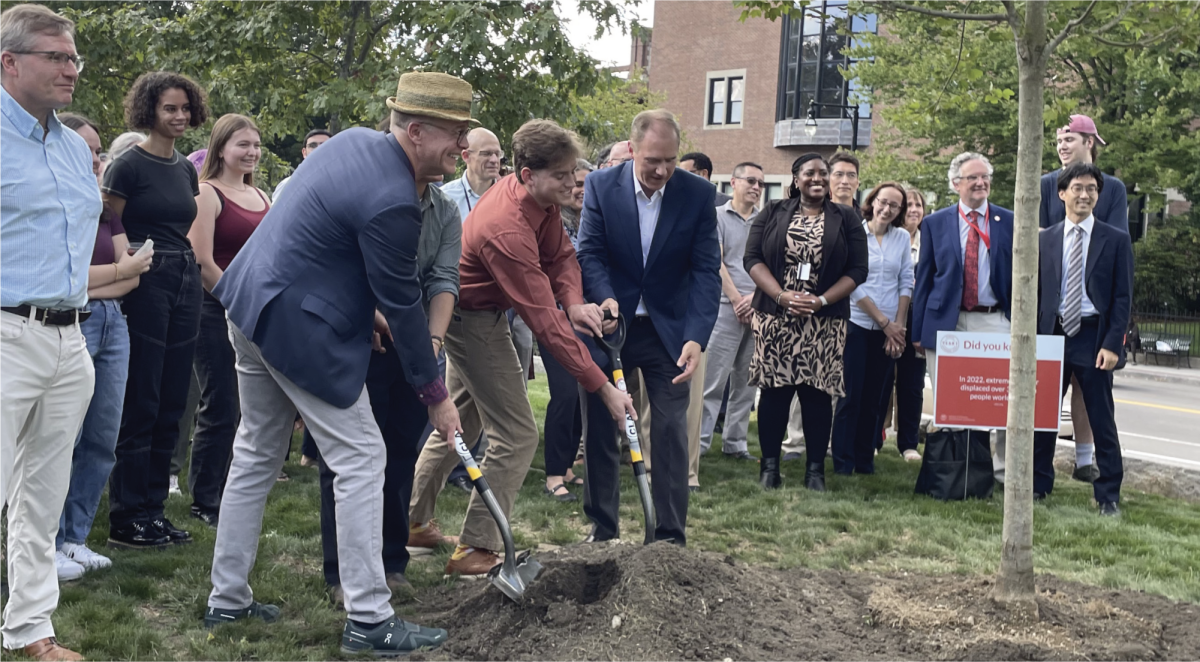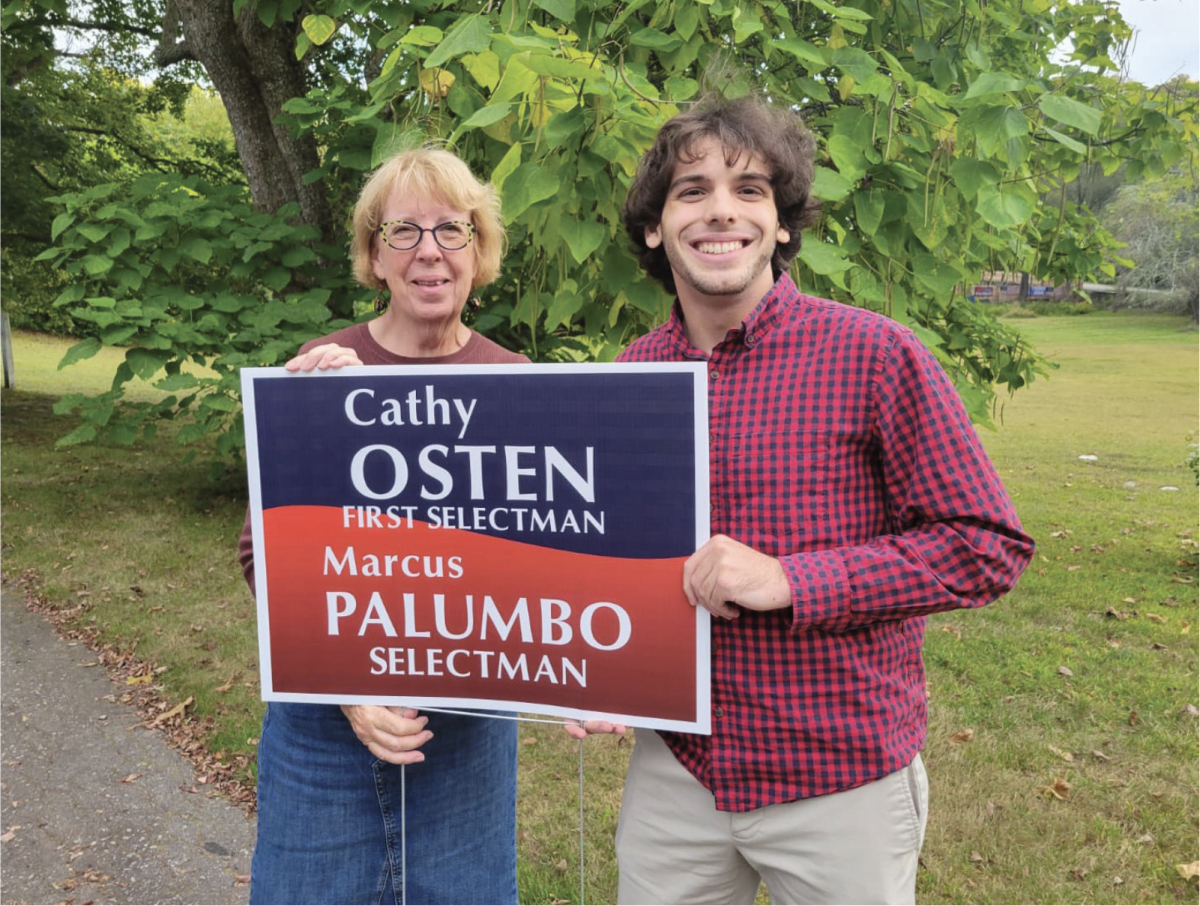During the undergraduate workers’ strike for card check neutrality earlier this March, The Scarlet reported on March 13 that faculty were in the process of sending a letter to the administration encouraging them to agree to card check neutrality.
Professor Jack Delehanty, an Associate Professor of Sociology, said the idea to write a faculty letter arose within the context of the American Association of University Professors (AAUP) chapter on campus. The AAUP is not a labor union but an organizational body seeking to advance the interests of faculty members. The faculty involved in the chapter have interests aligned with the students, according to Delehanty.
“What is good for us is good for the students, and what is good for the students is good for us,” he said.
The letter first circulated among AAUP members and then went out to the broader faculty. The Scarlet was unable to receive comment from Clark’s AAUP leaders.
According to Siobhán McGrath, an Associate Professor in Geography who specializes in teaching labor, a union is formed by first deciding who belongs in the bargaining unit. She used the example of a hospital: a union can be made up of just nurses or everyone in the hospital, minus management.
“When more workers are unionized, society is more equal,” Delehanty said. “The stronger the collective bargaining, the better society is as a whole to distribute resources.”
“As I understand it, the current legal interpretation of the National Labor Relations Act is that they [the undergraduate student workers] are indeed employees,” McGrath wrote.
“In my opinion, a worker is anyone who works,” Delehanty said. “If Clark undergraduate (workers) see one another as a collective of coworkers, that is their prerogative.”
The next step to becoming a union, McGrath wrote, is filing a petition for a union election with the National Labor Relations Board (NLRB). In order to do so, at least 30% of the workers in the bargaining unit should sign the petition.
Before the strike, the undergraduate workers had initially tried to go through this process, as reported by their Instagram account, @cu.ugwu, on February 14. On February 27, @cu.ugwu posted Clark’s response to the petition and their annotations. One annotation read that Clark disagreed with the Columbia 2016 decision, a decision that gave student workers the right to organize in the United States.
“They [Clark administration] intend to take advantage of the current anti-labor federal government to overturn this decision,” @cu.ugwu wrote. The next day, the account confirmed the petition was being withdrawn.
According to McGrath, the NLRB under the first Trump administration had proposed a ruling that student workers do not count as employees, which was then withdrawn by the NLRB during Biden’s administration.
“So it’s pretty much the prevailing consensus that a challenge to the Columbia University case would not have been worth pursuing during a Democratic administration because it would have likely failed, whereas during a Republican administration it is worth pursuing – because a challenge now would likely result in it being overturned,” McGrath wrote.
Delehanty was unsure if the University administration was consciously backing the Trump administration but that the result of their actions mattered more. “By taking the strategy that they have, they’re making it clear that the end result of breaking the union matters more to them than maintaining higher education from a Republican attack.” Prior to the strike ending, he predicted that the administration would not agree to card check neutrality. Instead, he said that the administration would likely wait until summer for when the strike leaders graduate and leave campus, replaced by incoming students that would not be as in tune to the campus climate.
Faculty’s response to administration on the subject of undergraduate unionization is a part of an ongoing struggle with administration, Delehanty said.
“The context here is that faculty have been frustrated with certain aspects with how key decisions have been made over the last year.”
“All departments were asked to reduce their budgets last spring, I believe,” an anonymous professor wrote to The Scarlet. “Additional staff have been laid off since then. Remaining staff members are trying to do all of the work they did previously (and more) with less help…I can imagine that work study students are being asked to do more by supervisors who are stretched too thin. No wonder they feel unappreciated.”
Delehanty also alleged that last year, administrators told faculty that the cost of living increase on their salaries would be 2%. A couple months later in June, this was rescinded, and faculty did not receive a raise.
“I thought it was extremely unprofessional,” Delehanty said.
“I have been at Clark for over 25 years,” the anonymous professor wrote. “Through all that time, I believe that the faculty have been behind our peers at similar institutions in terms of compensation.” They state that it has gotten better over time, especially through the work of the Faculty Compensation Committee, but “continues to be frustrating.”
“Our ability to plan curriculum over time is impeded – we don’t know what our instructional capacity will be,” Delehanty added. He said there is a desire to offer courses, but the department does not know if they’ll be able to hire somebody to teach said courses.
“Multi-year appointments are now one-year appointments,” he said.“There’s no security or stability.”
Delehanty said that the administration’s proposal is to cut expenses, utilizing a business mindset. However, he believes that this would result in the school no longer offering an education students are attracted to.
“From a values perspective, cutting expenses renders this place a shell of itself, and places us at risk just as much or more,” he said. Delehanty proposes a more gradual solution, which would involve fewer cuts, relying on the endowment to produce additional revenue, and asking more support from the Board of Trustees.
The anonymous professor pointed to the decrease in birth rates during and after the Great Recession.
“We are highly invested in planning for a university that will attract students from a significantly smaller number of high school students in the future,” the anonymous professor wrote. “We need to decrease the size of the faculty and staff in response to a much smaller student body.”
They proposed focusing on programs that will attract the student body and reducing the size of faculty to adjust to a smaller student body.
“I am optimistic that we can get through this, but the burden will fall on some part-time and visiting faculty,” they wrote. “We all hate that this is happening, and wish it were not necessary.”
“Provost Magee and Dean [Laurie] Ross both volunteered for their positions when no one else was willing to take them on in this climate,” the anonymous professor said. They wrote of an instance in which Provost Magee invited faculty for a bag lunch to review budget trends and how the climate is playing out for Clark and beyond.
“I know that some faculty feel that administration has not been transparent, but you can find out what is going on if you take the time to do so,” they wrote. They also provided information that faculty meet once per month, and that the topic of the budget has been “consistently on the agenda.”
Delehanty said that he believes in the administration’s sincerity but finds the cuts to be worrying. “I believe that administration is sincere in wanting to ensure the future success of Clark University, but the faculty as a whole are worried that the cuts that they’re making will cut so deep that we’ll lose what makes us ‘us’ through the process.”
“I’m confident in the work we do,” Delahanty concluded. “I’m confident in the teaching that we offer. I’m confident in the value of a Clark University education to students personally, intellectually, and professionally.”

